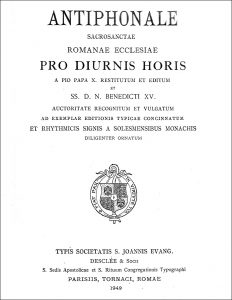News has come to us of a fine project in western Canada: SS. Joachim and Ann Parish in Aldergrove, B.C., near Vancouver, is hosting an educational and practical conference on sacred music in July. For information on the B.C. Sacred Music Symposium, see their website and check out the video.
Author Archives: Webmaster
Sacred Music Symposium in British Columbia, July 20-22, 2018
- Friday, 29 June 2018 17:02
- Webmaster
- 0 Comments
The CMAA Shop now features books, too!
- Wednesday, 04 October 2017 01:19
- Webmaster
- 0 Comments
We’re expanding the CMAA Shop web site to include not just event registrations, but also CMAA books and memberships.
Now, in one site, you can find information on CMAA’s original editions and our reprints of classic works: essential performing editions of plainchant, works of scholarship, and valuable aids for music instruction. Have a look around!
A bonus: most book orders of $100 or more are eligible for discounts of 10% or more: for larger orders, the discounts run up to 25%.
“Culmen et Fons” conference Sep 18-22 near Boston
- Wednesday, 05 July 2017 14:03
- Webmaster
- 0 Comments
Dom Alcuin Reid, Fr. Thomas Kocik and other distinguished speakers will present talks at a conference in Peabody, MA in mid-September.
The “Culmen et Fons” conference is designed for clergy, liturgical ministers, musicians, and other interested laity.
The conference includes a track on sacred music, with chant and polyphony instruction presented by choral conductors Michael Olbash and David Hughes.
Information on talks, the schedule, and registration is at the conference website.
“Cantate Domino”: an international declaration on sacred music
- Sunday, 05 March 2017 20:54
- Webmaster
- 0 Comments
On Sunday, March 5, to mark the 50th anniversary of the Church’s Instruction on Music in the Liturgy Musicam sacram, over 200 musicians, pastors, and scholars published a declaration under the title “Cantate Domino canticum novum”.
The statement recalls the Second Vatican Council’s teaching which describes sacred music as “a treasure of inestimable value”, and it speaks of elements in common practice “that contribute to the present deplorable situation of sacred music and of the liturgy.”
We, the undersigned—musicians, pastors, teachers, scholars, and lovers of sacred music—humbly offer to the Catholic community around the world this statement, expressing our great love for the Church’s treasury of sacred music and our deep concerns about its current plight.
The statement calls on the Church to (1) reaffirm the musical heritage of the Roman rite: Gregorian chant and sacred polyphony; (2) give children an exposure to the beauty of true musical art; (3) promote the professional training of lay church musicians; (4) insist on high standards for music in cathedrals and basilicas; (5) encourage every parish to offer at least one fully sung Mass every Sunday; (6) provide musical training for the clergy, to enable them to sing their part of the liturgy; and (7) educate liturgists in the musical tradition of the Church.
These recommendations, along with a discussion of widespread failings in musical practice, are fleshed out in the full document, which is available here. Versions in five other languages can be reached through the coverage at our sister site New Liturgical Movement.
Antiphonale Romanum (1960 edition) available for download
- Saturday, 08 October 2016 02:15
- Webmaster
- 0 Comments
 One part of CMAA’s work has been in sharing Gregorian chant resources through the Internet, by making rare chant books available as free downloads in PDF format. Today we are adding another major part of the Gregorian repertoire to our on-line collection. The Antiphonale Romanum is now available in the last edition published before the liturgical reforms. This book (also called the Liber Antiphonarius) is the 1949 edition from Solesmes, with appendices and updates to 1960, when the feast of St. Joseph the Worker was made universal. At over 1500 pages, it provides a vast and essential reference for celebrations of Lauds, Vespers, and the other canonical Hours according to the Extraordinary Form of the Roman Rite.
One part of CMAA’s work has been in sharing Gregorian chant resources through the Internet, by making rare chant books available as free downloads in PDF format. Today we are adding another major part of the Gregorian repertoire to our on-line collection. The Antiphonale Romanum is now available in the last edition published before the liturgical reforms. This book (also called the Liber Antiphonarius) is the 1949 edition from Solesmes, with appendices and updates to 1960, when the feast of St. Joseph the Worker was made universal. At over 1500 pages, it provides a vast and essential reference for celebrations of Lauds, Vespers, and the other canonical Hours according to the Extraordinary Form of the Roman Rite.
The book (100 MB) is available for download here: Antiphonale Romanum, and it’s also listed on the “Resources” page of this site.
(Special thanks are due to CMAA president William Mahrt, who gave up his copy of the book to have it cut apart and scanned: thank you, Bill!)